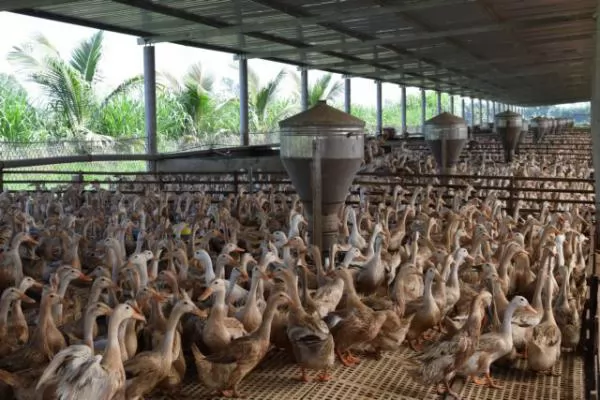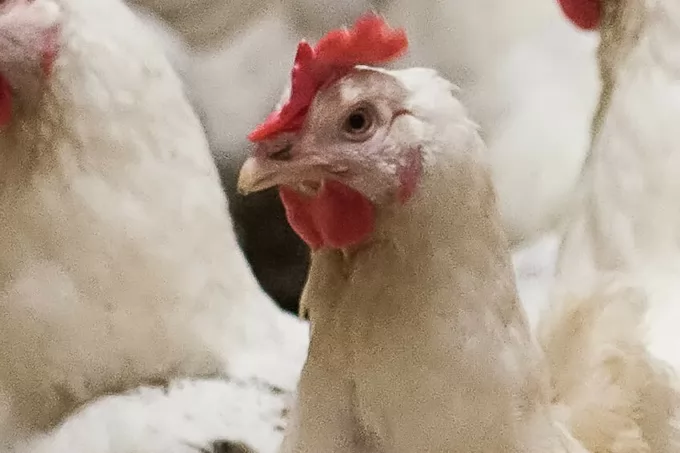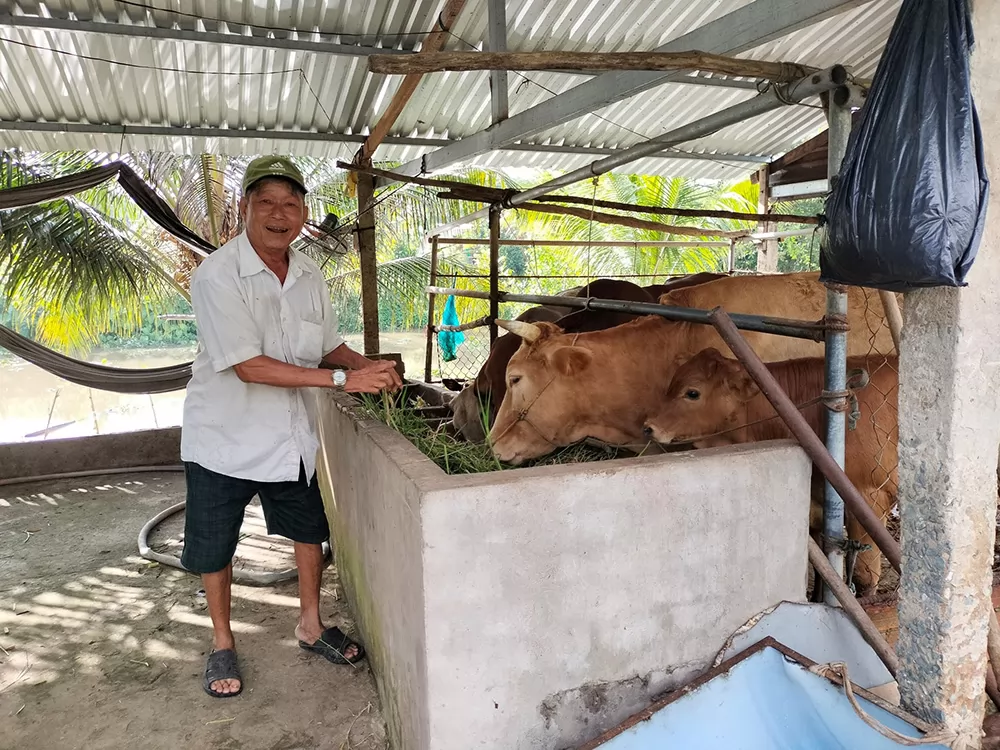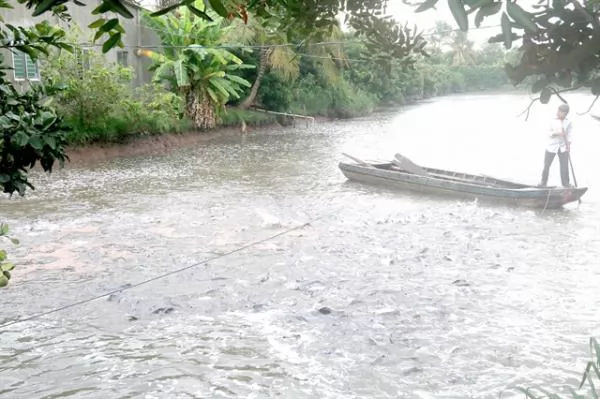Duck farmers urged to meet biosafety standards

Breeding ducks in Đồng Tháp Province's Tam Nông District. — VNA/VNS Photo Chương Đài
HCM CITY — Authorities in the Cửu Long (Mekong) Delta have encouraged farmers to breed ducks under biosafety standards and develop guaranteed outlets to ensure stable incomes.
The delta, which has the largest number of ducks in the country, has about 25 million ducks, accounting for 37 per cent of total ducks.
Duck breeding is the main source of income of 240,000 households in the delta, according to the National Agriculture Extension Centre.
However, duck farmers in the delta are facing several challenges like bird flu, unstable outlets and high prices of duck food.
In duck raising, delta farmers use mostly free-range duck breeding methods in which ducks are fed on rice fields since the method reduces food costs but has many risks like disease outbreaks.
In Cần Thơ City, for instance, free-range ducks account for 90 per cent of its 1.9 million fowl.
Đồng Tháp Province, the delta’s largest duck producer, bred 6.8 million ducks last year and a vast majority of them were free-range ducks.
Huỳnh Tấn Đạt, deputy director of the Đồng Tháp Department of Agriculture and Rural Development, said free-range duck breeding methods were no longer suitable because of the risks.
Therefore, the province has encouraged the breeding of ducks on a concentrated large scale under biosafety standards with brand names.
The province will also continue providing duck breeding techniques, and inspect duck food quality and diseases.
Nguyễn Văn Bắc of the National Agriculture Extension Centre said to ensure biosafety standards in breeding free-range ducks, free-range duck herds should be inspected closely to avoid disease and harm from pesticides or other toxic substances which can affect the quality of eggs and meat.
Farmers should also provide sufficient vaccination for ducks and use bio-products to treat duck waste.
The delta authorities have encouraged duck farmers to establish co-operative groups and co-operatives to breed ducks in a concentrated industrial scale and co-operate with companies to guarantee outlets.
Đồng Tháp has established five co-operative groups to breed ducks in co-ops on a concentrated large scale. The groups have 26 members who raise a total of 154,000 ducks with an output of 128,000 eggs a day.
Many duck farmers in the province have linkages with companies that supply input materials and later buy their duck products.
Đồng Tháp is calling on investors to pour money into a poultry breeding centre to supply duck breeder parents that meet quality standards and safety.
It is also supporting farmers to establish duck raising models that meet quality standards and increase the competitiveness of their duck products.
Đồng Tháp plans to develop its ducks from 6.8 million last year to 7.5 million this year, according to its Department of Agriculture and Rural Development. — VNS
Maybe you are interested

Laying Hen Welfare Forum launches white bird feedback survey
The UK's Laying Hen Welfare Forum has launched a survey to establish the sector's experiences in rearing and managing white bird commercial layers.

Lumpy skin disease reappears
(VAN) At present, lumpy skin disease is showing signs of reappearing. Buffalo and cow breeders in the Mekong Delta need to pay attention to good disease prevention for their livestock herd and avoid being subjective.

Tiền Giang Province develops fresh water aquaculture
The Cửu Long (Mekong) Delta province of Tiền Giang is expanding fresh water aquaculture in upstream localities of the Tiền River.





